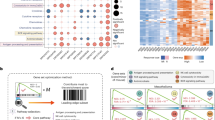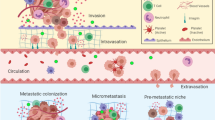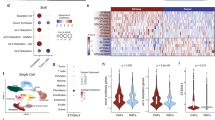Abstract
Tumor necrosis factor-related apoptosis-inducing ligand (TRAIL) has attracted considerable attention for its potential use in tumor therapy, as some recombinant variants of this ligand induce apoptosis in tumor cells without harming most normal cells. Here, we show that TRAIL strongly induces the expression of the proinflammatory cytokines interleukin-8 and monocyte chemoattractant protein 1 and enhances the invasion of apoptosis-resistant pancreatic ductal adenocarcinoma cells in vitro by upregulation of the urokinase-type plasminogen activator expression. Most importantly, we also demonstrate for the first time that TRAIL treatment results in strongly increased distant metastasis of pancreatic tumors in vivo. We orthotopically transplanted human pancreatic ductal adenocarcinoma cells to the pancreata of severe combined immunodeficiency mice and observed a dramatic increase in metastatic spread including a sixfold increase in the volume and fourfold increase in the number of liver metastases upon TRAIL treatment. Our results point to the necessity to carefully evaluate in vivo side effects of TRAIL and to select therapy conditions that not only enhance apoptosis induction but in addition prevent proinvasive and proinflammatory non-apoptotic TRAIL signaling.
This is a preview of subscription content, access via your institution
Access options
Subscribe to this journal
Receive 50 print issues and online access
$259.00 per year
only $5.18 per issue
Buy this article
- Purchase on Springer Link
- Instant access to full article PDF
Prices may be subject to local taxes which are calculated during checkout




Similar content being viewed by others
References
Almasan A, Ashkenazi A . (2003). Cytokine Growth Factor Rev 14: 337–348.
Altucci L, Rossin A, Raffelsberger W, Reitmair A, Chomienne C, Gronemeyer H . (2001). Nat Med 7: 680–686.
Armeanu S, Lauer UM, Smirnow I, Schenk M, Weiss TS, Gregor M et al. (2003). Cancer Res 63: 2369–2372.
Ashkenazi A, Pai RC, Fong S, Leung S, Lawrence DA, Marsters SA et al. (1999). J Clin Invest 104: 155–162.
Baader E, Toloczko A, Fuchs U, Schmid I, Beltinger C, Ehrhardt H et al. (2005). Cancer Res 65: 7888–7895.
Chen C, Edelstein LC, Gelinas C . (2000). Mol Cell Biol 20: 2687–2695.
Ehrhardt H, Fulda S, Schmid I, Hiscott J, Debatin KM, Jeremias I . (2003). Oncogene 22: 3842–3852.
Evans JD, Cornford PA, Dodson A, Greenhalf W, Foster CS, Neoptolemos JP . (2001). Pancreatology 1: 254–262.
von Haefen C, Gillissen B, Hemmati PG, Wendt J, Guner D, Mrozek A et al. (2004). Oncogene 23: 8320–8332.
Hinz S, Trauzold A, Boenicke L, Sandberg C, Beckmann S, Bayer E et al. (2000). Oncogene 19: 5477–5486.
Insinga A, Monestiroli S, Ronzoni S, Gelmetti V, Marchesi F, Viale A et al. (2005). Nat Med 11: 71–76.
Ishimura N, Isomoto H, Bronk SF, Gores GJ . (2006). Am J Physiol Gastrointest Liver Physiol 290: 129–136.
Lawrence D, Shahrokh Z, Marsters S, Achilles K, Shih D, Mounho B et al. (2001). Nat Med 7: 383–385.
MacFarlane M, Kohlhaas SL, Sutcliffe MJ, Dyer MJS, Cohen GM . (2005). Cancer Res 65: 11265–11270.
Miyamoto Y, Hosotani R, Wada M, Lee JU, Koshiba T, Fujimoto K et al. (1999). Oncology 56: 73–82.
Müerköster S, Wegehenkel K, Arlt A, Witt M, Sipos B, Kruse ML et al. (2004). Cancer Res 64: 1331–1337.
Nebbioso A, Clarke N, Voltz E, Germain E, Ambrosino C, Bontempo P et al. (2005). Nat Med 11: 77–84.
Rudner J, Jendrossek V, Lauber K, Daniel PT, Wesselborg S, Belka C . (2005). Oncogene 24: 130–140.
Schniewind B, Christgen M, Kurdow R, Haye S, Kremer B, Kalthoff H et al. (2004). Int J Cancer 109: 182–188.
Shankar S, Srivastava RK . (2004). Drug Resist Update 7: 139–156.
Siegmund D, Wicovsky A, Schmitz I, Schulze-Osthoff K, Kreuz S, Leverkus M et al. (2002). Mol Cell Biol 25: 6363–6379.
Tepel J, Dagvadorj O, Kapischke M, Sipos B, Leins A, Kremer B et al. (2005). Int J Colorectal Dis 16: 1–8.
Trauzold A, Röder C, Sipos B, Karsten K, Arlt A, Jiang P et al. (2005). FASEB J 19: 620–622.
Trauzold A, Wermann H, Arlt A, Schütze S, Schäfer H, Oestern S et al. (2001). Oncogene 20: 4258–4269.
Wajant H, Gerspach J, Pfizenmaier K . (2005). Cytokine Growth Factor Rev 16: 55–76.
Wajant H, Pfizenmaier K, Scheurich P . (2002). Apoptosis 7: 449–459.
Walczak H, Miller RE, Ariail K, Gliniak B, Griffith TS, Kubin M et al. (1999). Nat Med 5: 157–163.
Acknowledgements
We thank Beate Bestmann, MA, Reference Center for Quality of Life, University of Kiel, Germany, for helpful advice in statistical data evaluation. This study was supported by the Deutsche Forschungsgemeinschaft (Grant SFB 415-A3 to HK and Grant SFB 487-B7 to HW) and Deutsche Krebshilfe (Grant 10-1751-Wa 3 to HW).
Author information
Authors and Affiliations
Corresponding author
Additional information
Supplementary Information accompanies the paper on the Oncogene website (http://www.nature.com/onc).
Supplementary information
Rights and permissions
About this article
Cite this article
Trauzold, A., Siegmund, D., Schniewind, B. et al. TRAIL promotes metastasis of human pancreatic ductal adenocarcinoma. Oncogene 25, 7434–7439 (2006). https://doi.org/10.1038/sj.onc.1209719
Received:
Revised:
Accepted:
Published:
Issue Date:
DOI: https://doi.org/10.1038/sj.onc.1209719
Keywords
This article is cited by
-
Serum TRAIL predicts severity and prognosis in patients with community-acquired pneumonia: a prospective cohort study
Internal and Emergency Medicine (2022)
-
TRAIL promotes epithelial-to-mesenchymal transition by inducing PD-L1 expression in esophageal squamous cell carcinomas
Journal of Experimental & Clinical Cancer Research (2021)
-
TRAIL-receptor 2—a novel negative regulator of p53
Cell Death & Disease (2021)
-
An unexpected turn of fortune: targeting TRAIL-Rs in KRAS-driven cancer
Cell Death Discovery (2020)
-
Dasatinib prevents skeletal metastasis of osteotropic MDA-MB-231 cells in a xenograft mouse model
Archives of Gynecology and Obstetrics (2020)



